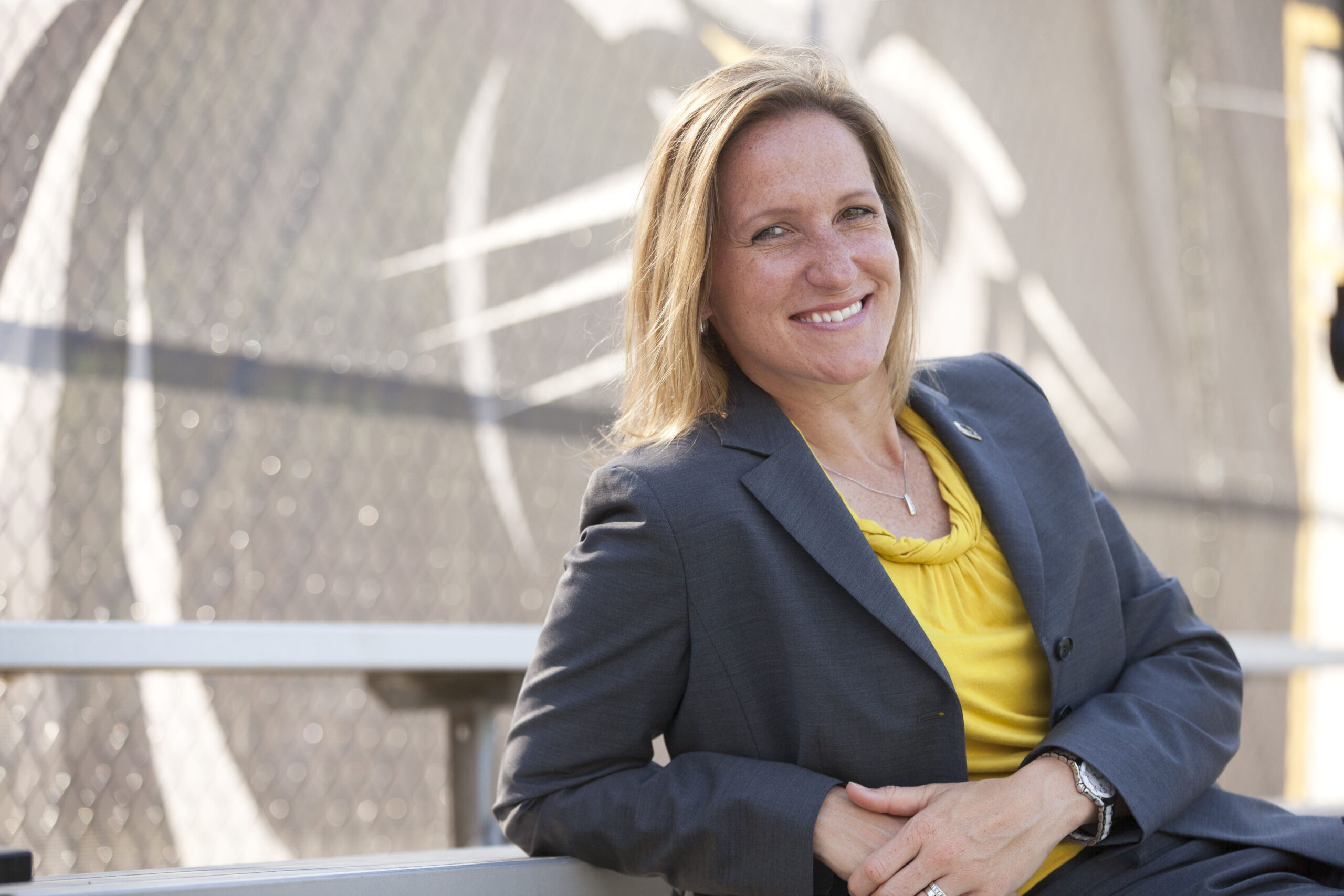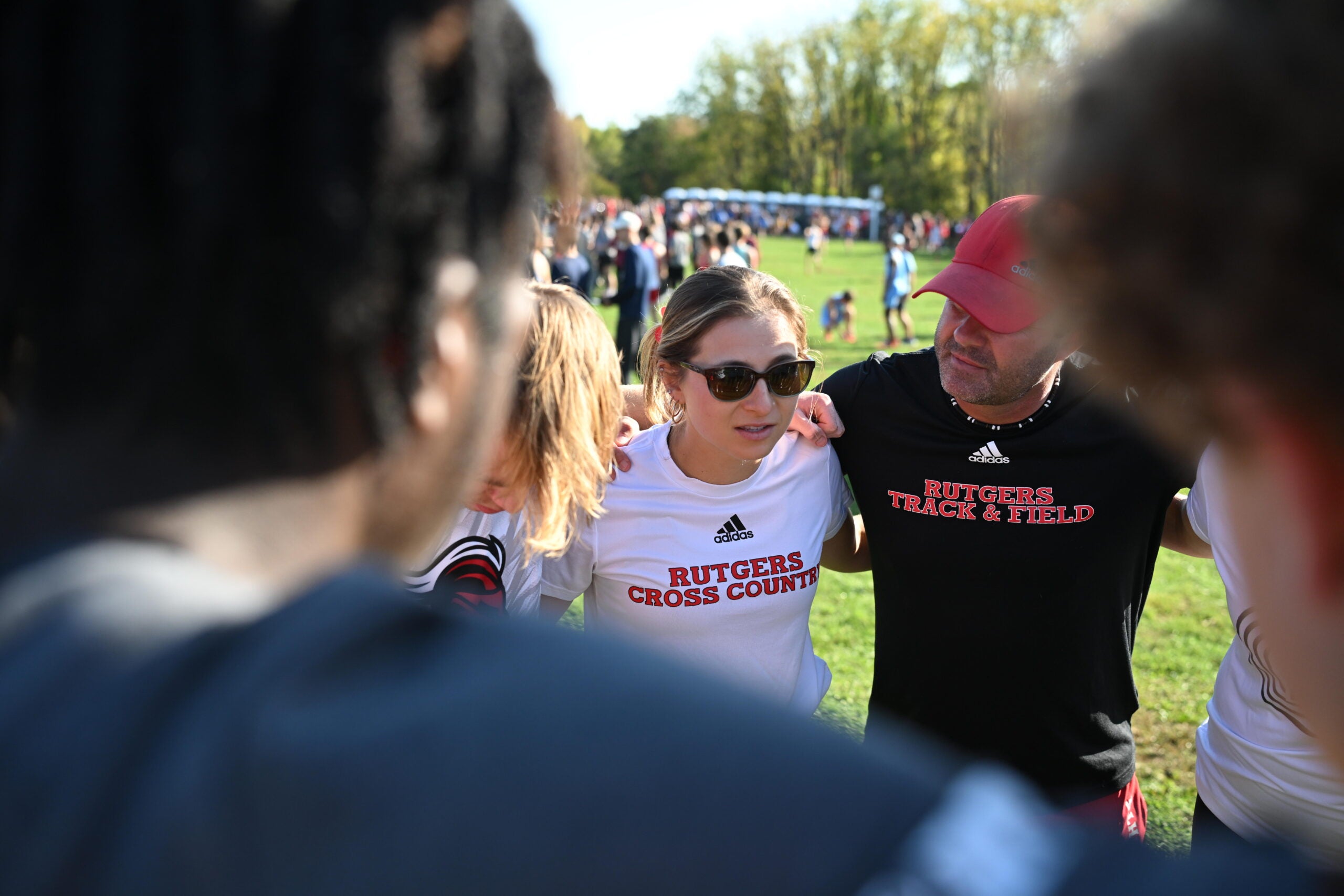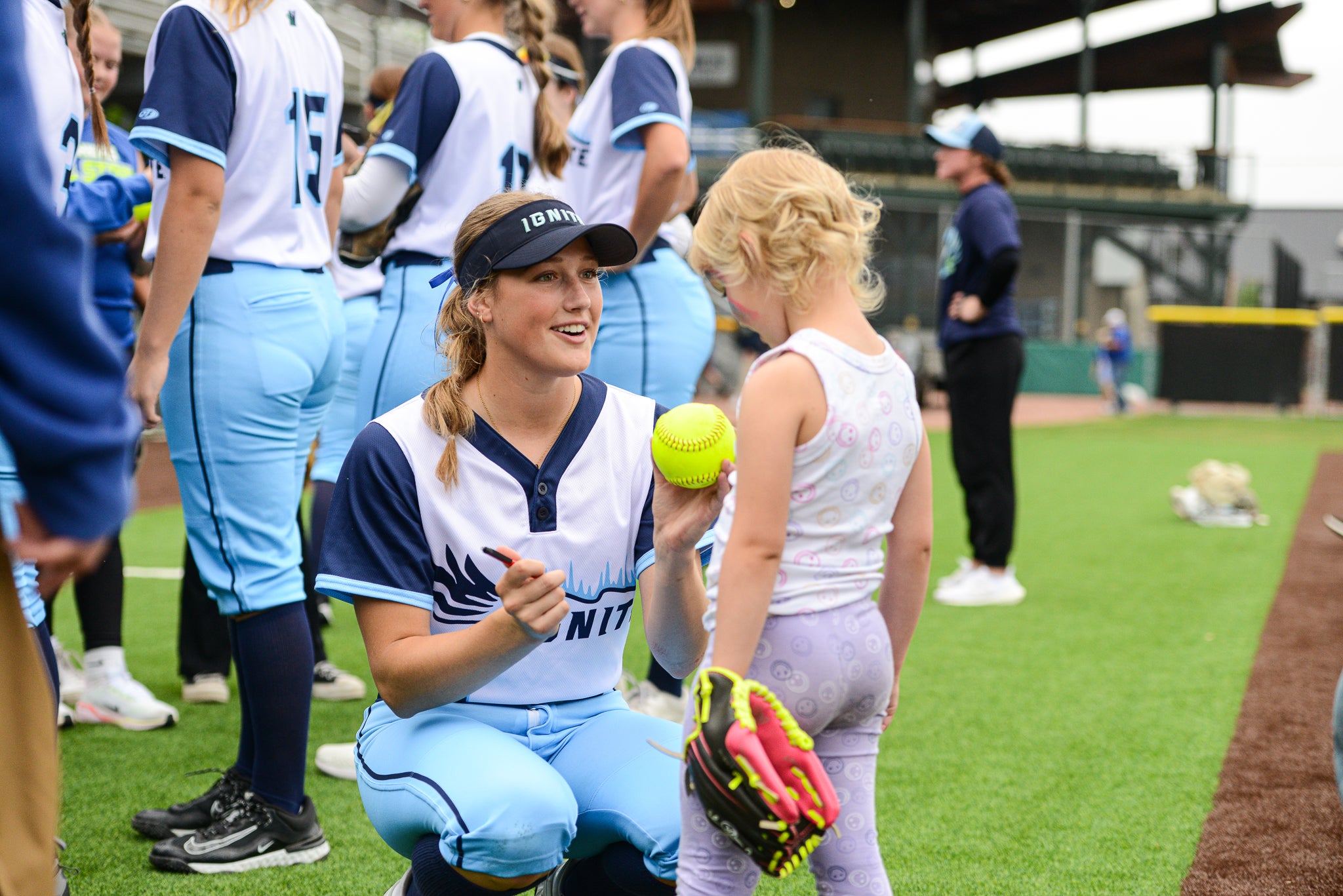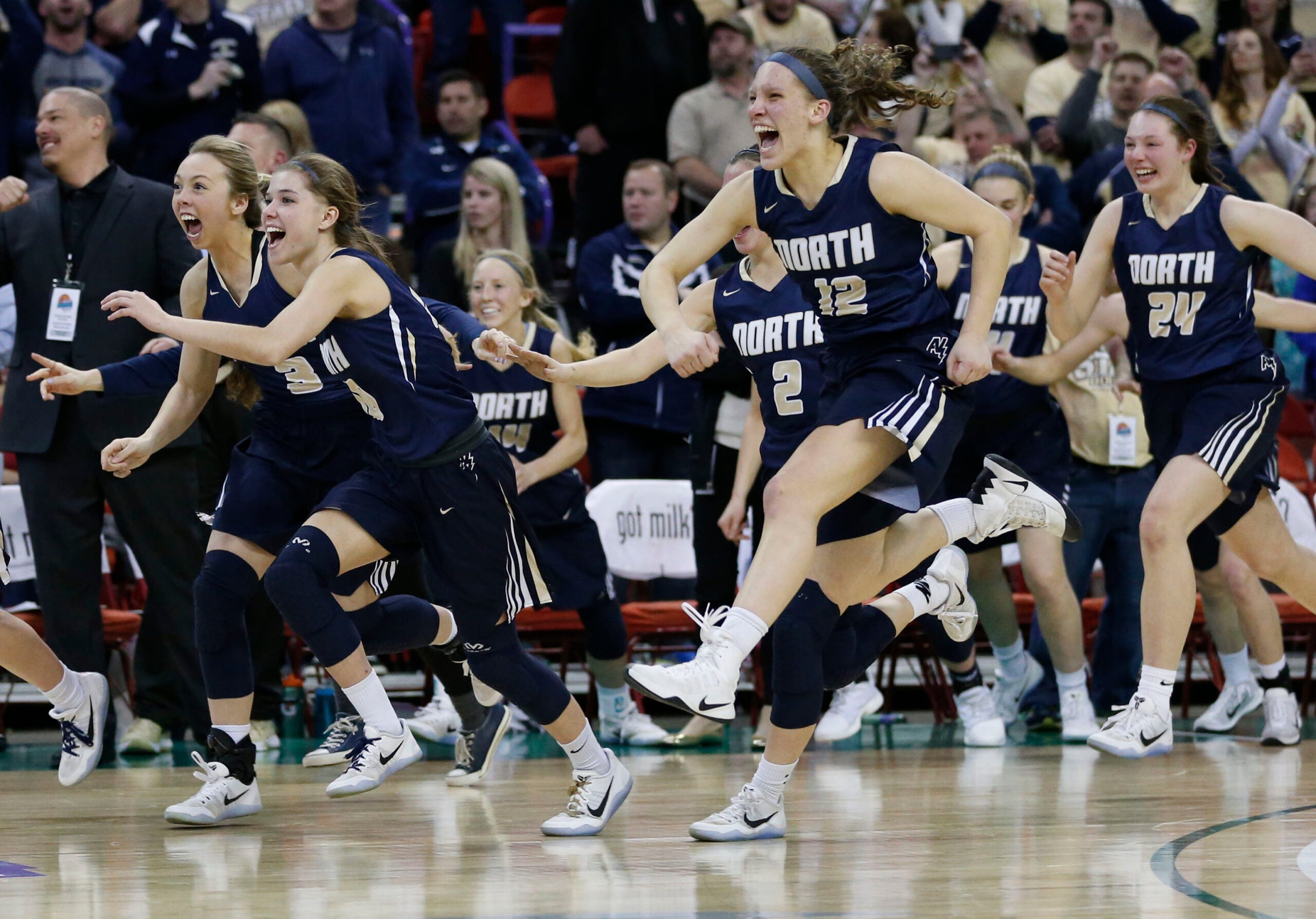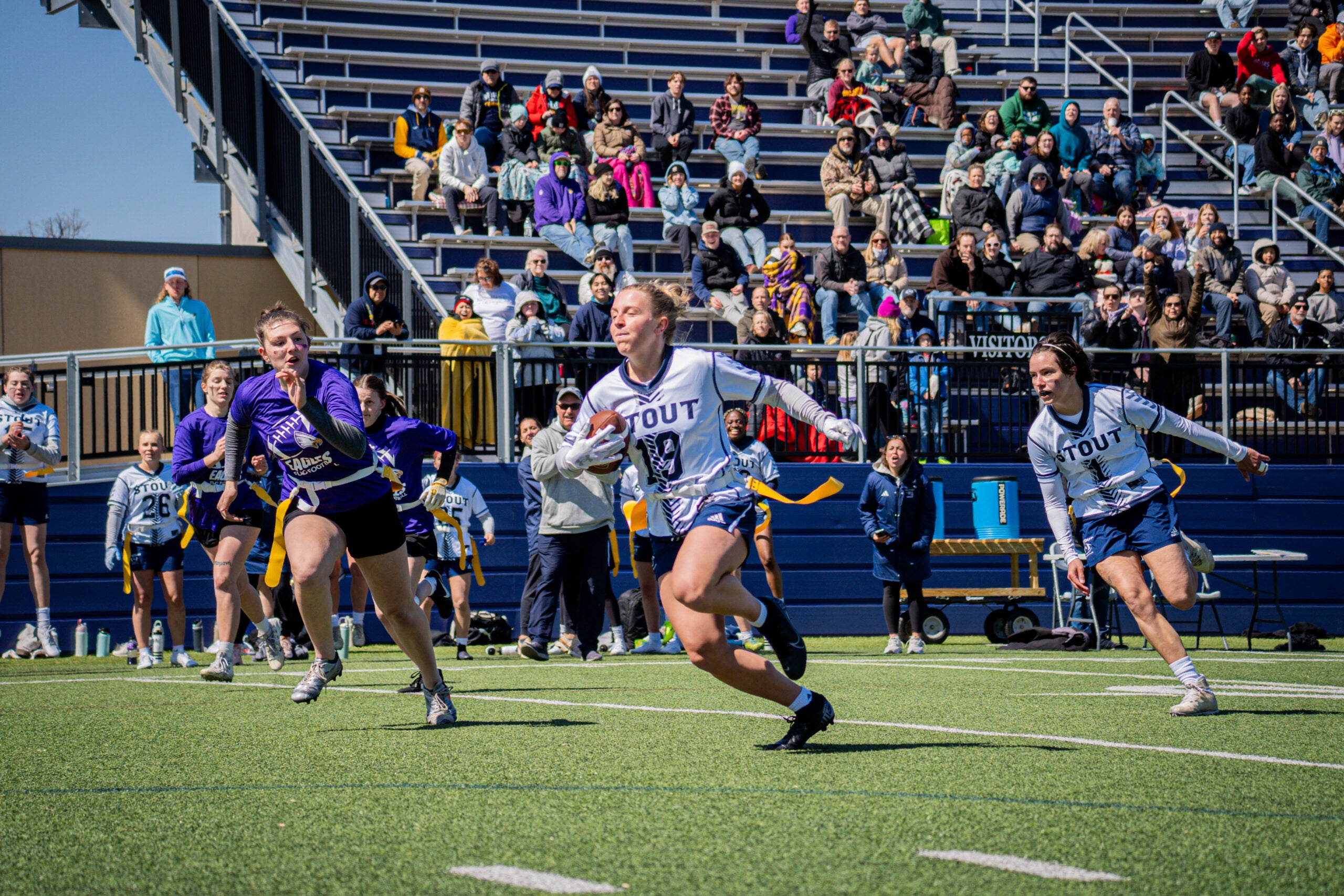When Amanda Braun became the director of athletics at the University of Wisconsin-Milwaukee in 2013, women represented about 1 in every 5 athletic directors in college sports.
Today, a decade after she took the helm of Panthers athletics, the ratio is up to about 1 in every 4 athletic directors, according to the NCAA.
One national group striving to further elevate women in college sports is the Missouri -based organization Women Leaders in Sports. The group recognized Braun as executive of the year.
News with a little more humanity
WPR’s “Wisconsin Today” newsletter keeps you connected to the state you love without feeling overwhelmed. No paywall. No agenda. No corporate filter.
During Braun’s tenure, UW-Milwaukee athletics increased donors by 45 percent, secured the single largest donation in its history and held athlete grade point averages at 3.0 or above, according to the university.
Braun recently appeared on WPR’s “The Morning Show” to discuss her national recognition and advancing equity in college sports.
“I work hard to encourage not just our women but our male colleagues within our department — in our league — to see women as leaders,” Braun said.
The following was edited for brevity and clarity.
Kate Archer Kent: How could college sports become a more welcoming, inclusive workplace for women in leadership roles?
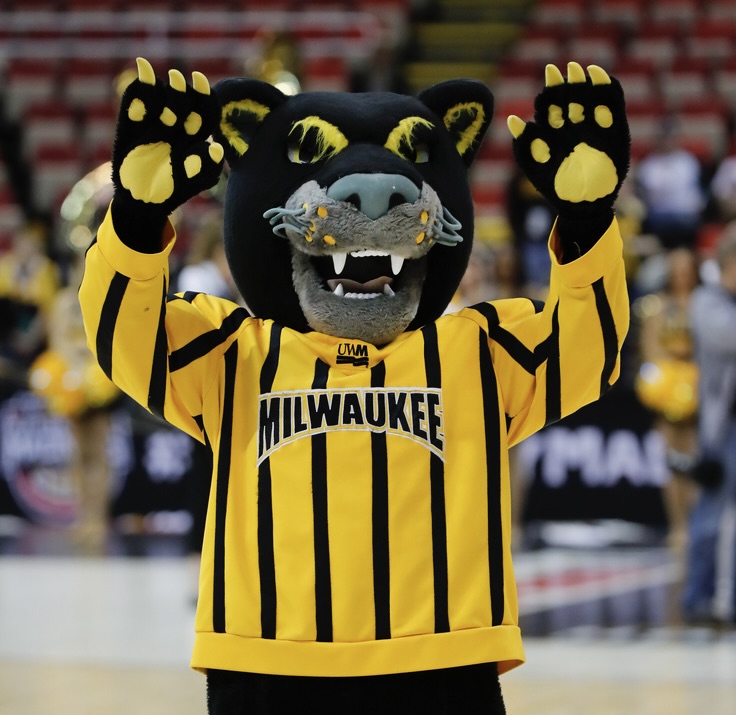
Amanda Braun: That’s the question I think we’re working to answer, and not just for women but for people of color as well. How do we create a pipeline that welcomes folks no matter what their background and appreciate the difference and diversity that folks bring? I think the question really is answered by encouraging people to do that early on.
For me, that’s part of my why. I certainly enjoy being a leader. I’m a strategic thinker, problem-solver — all those things that come with organizational leadership. But also, I care a lot about making sure that women see other women in these roles.
KAK: You were recognized by the Women Leaders in Sports organization. It seems as if mentorship and collaboration is really important in this organization. Will there be a day when a specific organization is not needed?
AB: I hope so. I really do — though I think there will always be some uniqueness to our experiences and often only other women can appreciate the subtleties that we experience as leaders in any organization, in any industry.
So, I think (an organization) will always be helpful to share perspectives and support one another in those ways. But yeah, certainly I hope we advance to where 50 percent of athletics directors at all levels of college athletics are women. That would be terrific.
KAK: What are those leadership subtleties on the business side that differentiate women in collegiate sports administration?
AB: I wouldn’t say it’s a whole lot different from leadership for women generally. You have to socialize expectations for how you look or behave. We walk a tightrope often, right? Are you too ambitious or aggressive or are you too much of a pushover?
I’ve always thought a sense of humor is really important when I have those experiences. I often just take it with a grain of salt and laugh at it. Obviously, if there is a real issue, you have to respond to it right away. But often it’s the subtleties. It’s people not understanding.
I can’t tell you the number of times in my 10 years here at UW-Milwaukee and people have said, “So, you’re the athletic director for all of the sports?” And my guess is men don’t get that question. I don’t react with anything but grace, like, “In fact, yes I am, and we have 15 sport programs.”
KAK: Are athletic directors doing enough to push giving women’s sports more visibility, more coverage and more resources?
AB: I think so, but it depends. We are at the Division I level and our resources are a bit larger than in Division II and certainly in Division III, even without football.
We really have to be focused on ensuring that we’re funding our programs appropriately and that’s not just the men’s programs, it’s the women’s as well.
In many of our departments, the road right now for revenue generation does run through often male sports, so we’d love to diversify that more and the marketing efforts are there for women’s sports. … We’ve got to get folks to cover a little bit more media exposure that we’re not necessarily creating ourselves and then take full advantage of that when that happens.
KAK: In October, the state Legislature advanced a Republican-backed measure that would limit college athletes to playing on teams depending on the gender they were assigned at birth. If the measure passes the full Legislature, Gov. Tony Evers has vowed to block the plan from becoming law. How are you addressing this proposal with staff and athletes?
AB: Yeah, this issue has been around for quite some time, and we have had a number of conversations, not just with our coaches.
I had a roundtable last year with our head coaches just to hear from them on this topic and are they having experiences in recruiting and that sort of thing. Interestingly, they hadn’t bumped into it a whole lot and in fact one of our coaches said, “Well, we’ve had transgender athletes in our sport for decades and now it’s becoming an issue.”
Having been a former student athlete myself, I can understand that perspective and the difficulty that folks have with transgender women participating in women’s sports. I do understand that.
I do feel like we can come together and have conversations as opposed to being so oppositional on the issue. Unfortunately, that is what’s happening right now.
There isn’t an easy answer in my opinion, but it’s something that’s worth analysis, worth conversation and really trying to find a solution.
KAK: Is it worth conversation in the legislative environment, in state law?
AB: I can’t really speak to that. I understand why people are putting it there. I do. That’s where folks go to try to get something done at that level.
I’m not sure that’s necessary but it’s advanced to that. I’ll be interested to see how it evolves. We are very, very open with our student athletes about caring for all of who they are and ensuring that they feel safe and included in our athletic department.
But that’s a sticky issue.
KAK: We’re seeing UW-Green Bay, UW-Oshkosh and other campuses in the Universities of Wisconsin system face budget pressures and laying off staff. Are athletic departments managing similar financial headwinds?
AB: We sure are, yes. We’re not generating a whole lot of revenue over and above what we spend. So we’re fully integrated into the university and are dealing with the same types of challenges.
It has not been easy over the last few years, but academic support is one area where we definitely don’t want to compromise. So, we will find other ways.
We’re fortunate that we have a wonderful donor base, who have helped us get some things done. I would love to do more investment, would love to grow a bit more with things. But right now, it’s really been about maintaining the quality of experience that we can for our student athletes.
Wisconsin Public Radio, © Copyright 2026, Board of Regents of the University of Wisconsin System and Wisconsin Educational Communications Board.

